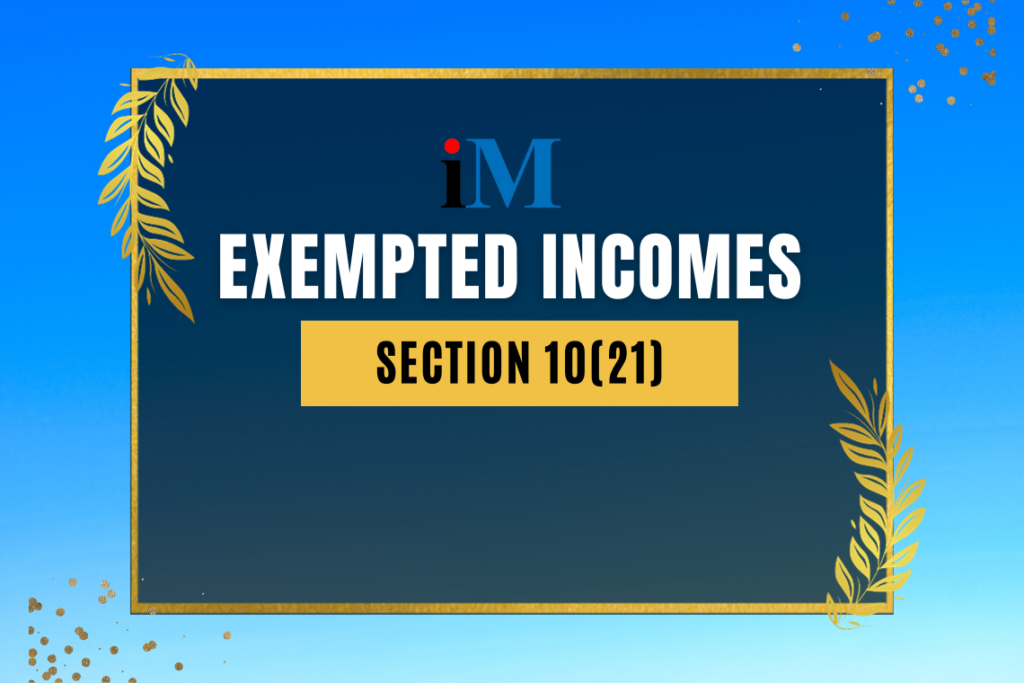An approved research association refers to an organization that is primarily engaged in scientific research. It can be a university, college, or any other institution that is recognized by the government as a research association for the purposes of Section 10(21). To be approved, the association must meet the following criteria:
- It must be a scientific or technical association.
- It must be engaged in scientific research or the development of new technologies.
- It must be a non-profit organization.
- It must be established in India.
- It must be open to all persons interested in scientific research.
- It must be approved by the Central Government in the prescribed manner.
Section 10(21) provides tax benefits to approved research associations in the form of exemption from income tax. The income of such associations is not considered as taxable income.
Conditions for Exemption
To be eligible for exemption under Section 10(21), the following conditions must be met:
- The research association must be approved by the Director General of the Council of Scientific and Industrial Research (CSIR).
- The research association must be established for the purpose of carrying out scientific research.
- The income of the research association must be applied solely for the purposes for which it is established.
Examples of Incomes:
The exemption under Section 10(21) is available for all types of income earned by an approved research association, including:
- Income from house property
- Income from capital gains
- Income from other sources
- Membership fees
- Donations
- Grants from the government or other organizations
- Income from investments
- Income from research projects
The exemption under Section 10(21) is available only if the income of the research association is used for research purposes. If the income is used for any other purpose, it will be taxable.
Here are some examples of research associations that may be eligible for the exemption under Section 10(21):
- A scientific research association that undertakes research in the field of science and technology.
- A social science research association that undertakes research in the field of social sciences such as economics, sociology, and political science.
- A statistical research association that undertakes research in the field of statistics.
The income of an approved research association is exempt from tax even if it is derived from a commercial activity, such as the sale of research findings or the provision of research services. However, the income must be applied solely for the purposes of scientific research.
Examples:
- An association of scientists is established to conduct research on renewable energy. The association is approved by the Central Government under Section 10(21). The income of the association from the sale of its research findings to private companies is exempt from tax.
- A research institute is established by a group of pharmaceutical companies to develop new drugs. The institute is approved by the Central Government under Section 10(21). The income of the institute from the provision of research services to the pharmaceutical companies is exempt from tax.
Examples of Section 10(21):
- An approved research association that conducts research on new agricultural technologies receives a grant from the government. This grant is exempt from tax under Section 10(21).
- An approved research association that develops new medical treatments receives donations from individuals and companies. These donations are exempt from tax under Section 10(21).
- An approved research association that sells its research findings to companies receives income from the sales. This income is taxable.



![Residential Status [Sections 5 to 9B]](https://incometaxmanagement.in/wp-content/uploads/2023/09/Residential-Status-Sections-5-to-9B-1024x683.jpg)

![EXEMPTED INCOMES [Section – 10, 10AA, 11 to 13A]](https://incometaxmanagement.in/wp-content/uploads/2023/09/Exempted-Incomes-Section-10-1024x683.jpg)

![Income of an Electoral Trust shall be Exempt [Section 13B]](https://incometaxmanagement.in/wp-content/uploads/2023/10/61-Exempted-Incomes-Section-13B-1024x683.png)
![Incomes of Political Parties [Section-13A]](https://incometaxmanagement.in/wp-content/uploads/2023/10/60-Exempted-Incomes-Section-13A-1024x683.png)
![Special Provisions in respect of Newly-established Units in Special Economic Zones (SEZ) [Section-10AA]](https://incometaxmanagement.in/wp-content/uploads/2023/10/59-Exempted-Incomes-Section-10AA-1024x683.png)
![Exemption in respect of income chargeable to Equalization Levy [Section 10(50)]](https://incometaxmanagement.in/wp-content/uploads/2023/10/58-Exempted-Incomes-Section-1050-1024x683.png)
![Income of a Developmental Financing Institution (DFI) to be Exempt [Section 10(48E)]](https://incometaxmanagement.in/wp-content/uploads/2023/10/57-Exempted-Incomes-Section-1048E-1024x683.png)